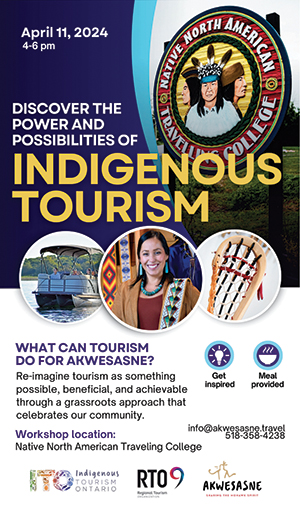Global Indigenous: Land Rights, Prison Injustice and Forestry Breakthroughs
By Deusdedit Ruhangariyo. Special to ICT. Reprinted with permission from ITC.
Around the world: Land activist wins Australian award, Canada’s prison system has changed little for Indigenous people, a forestry agreement draws praise in Honduras and an Indigenous woman is New Zealand’s fastest person ever
AUSTRALIA: Land rights activist wins top award
A Mayili man who has fought for land rights for Traditional Owners was named the Northern Territory’s Australian of the Year, National Indigenous Television reported on Nov. 1.
Samuel Bush-Blanasi, 60, who chairs the Northern Land Council, was celebrated at the Darwin Convention Centre for his work securing sea country rights in Arnhem Land for Traditional Owners and the formation this year of the Aboriginal Sea Company.
The company, the first of its kind, will allow Traditional Owners to manage commercial fishing, aquaculture, and other fishing activities along the Arnhem Land coastline, providing employment for Aboriginal people and encouraging sustainable farming.
Bush-Blanasi also recently oversaw the historic hand-back of the remaining half of Kakadu National Park to 14 clan estate groups and supported Native title claims,and has pushed for reform of the Australian constitution and helped draft the historic Uluru Statement from the Heart, NIT reported, according to NIT.
He was among four people honored for their work in the Northern Territory. Suicide prevention campaigner Bernard Tipiloura was named NT Senior Australian of the Year, while Jahdai Vigona is the NT Young Australian of the Year. Social worker Sacha King was named the NT Local Hero.
The four winners will join those from other states and territories for the national awards to be announced on Jan. 25.
“The NT award recipients are exceptional individuals committed to creating better futures - for their country, for community and for people,” Karlie Brand, chief executive officer for the National Australia Day Council, said.
CANADA: Prison system ‘resistant to change,’ report concludes
Canadian prisons have done little in the past decade to change the way Indigenous people are treated behind bars, according to a new study reported by APTN News on Nov. 1.
Ivan Zinger, the correctional investigator of Canada, said his annual report found that Indigenous people make up 32 percent of the prison population and continue to increase in numbers in the Correctional Service of Canada, which oversees federal prisons in Canada.
“It appears that, at the highest levels, CSC does not seem to accept that it has any role or influence on reversing the perpetual crisis of Indigenous overrepresentation in Canadian jails and prisons,” Zinger said, according to APTN News.
“A corporate culture and a prison system that are resistant to change can only serve to keep Indigenous Peoples marginalized, criminalized and over-incarcerated.”
The report found that Indigenous people are more likely to be labeled as gang members, more likely to injure themselves and more likely to attempt suicide. They also serve a greater proportion of their sentences than do non-Indigenous inmates.
“We found, again, terrible outcomes,” Zinger said.
Zinger first expressed the concerns about the looming crisis involving Indigenous peoples in Canada’s prisons in 2012 in a report, “Spirit Matters: Aboriginal People and the Corrections and Conditional Release Act,” which detailed the need to reduce the number of Indigenous offenders in prison and provide more programs to help them reintegrate into society.
In the 10 years since the initial report, Zinger said the CSC has done little to meet those recommendations.
HONDURAS: Forest agreement with EU brings optimism
A new timber export agreement between Honduras and the European Union is being praised for its potential to curtail illicit logging and other illegal activities, Mongabay.com reported on Nov. 3.
The Voluntary Partnership Agreement on Forest Law Enforcement, Governance and Trade is the first of its kind to go into force in the Americas, specifying that only legally harvested wood products will be exported to the European Union, Mongabay.com reported.
The agreement went into effect Sept. 1, but additional reforms and systems need to be set up in Honduras to license legally harvested timber and timber products for export, Mongabay.com reported.
A wave of optimism swept through community-based groups in Honduras after the new timber export agreement was signed.
“We hope that with improvement in governance in the forestry sector, illegality will be addressed, because that is the biggest problem we have,” said Norma Rodríguez, president of the Honduran Federation of Agroforestry Cooperatives, according to Mongabay.com.
“Those of us who work with legal timber cannot compete.”
The federation includes 96 agroforestry cooperatives with more than 6,000 total members in 10 of the country’s 18 departments. They handle forest products that include timber, furniture, pine resin, honey and pine needle crafts. The federation has a sawmill and also exports some timber to El Salvador and Nicaragua.
“Working legally in the country is quite expensive,” Rodriguez said.
AUSTRALIA: Indigenous teams win imagineNative award
Indigenous Australian, Māori and Pasifika film teams who produced a film, “We Are Still Here,” won the Dramatic Feature Award at the imagineNative Film and Media Arts Festival, National Indigenous Times reported on Nov. 1.
Renae Maihi, a Māori from the Ngāpuhi and Te Arawa tribes who was a writer-director on the film, said the recognition was meaningful given the challenges the film faced with the pandemic.
“The film is a story that tells 1,000 years of our history, from our perspective, and the impacts that the coming of settlers had upon our people and how our lives changed,” she said, according to National Indigenous Times.
“It’s a story of survival and resilience.”
The film was produced with Screen Australia and the New Zealand Film Commission, NIT reported.
Maihi, the only female Māori director to have had two films at the Toronto International Film Festival, said she worked years to find this level of success.
“When I first started as a storyteller, writer-director in this industry, I was one of the only few Māori woman directors and I remember feeling like it just really lacked women, and we needed more women, we needed more Indigenous women,” she said, according to NIT.
“For non-Indigenous audiences, I think it gives voice to our pain and our resilience, and also brings truth and reality to what happened to us as First Peoples.”
NEW ZEALAND: Zoe Hobbs is nation’s fastest person ever
A Ngāruahine woman has been named the fastest person ever in New Zealand, Te Ao Māori News reported on Nov. 2.
Runner Zoe Hobbs has broken the national 100-meter sprint record five times in the past year, and has also broken the record for the Oceania Area. Both records now stand at 11.08 seconds, Te Ao Maori News reported.
The reason for her success is simple, she said.
“It sounds so corny, but my biggest goal leading into the season that I just had was to be happy and healthy,” Hobbs said, according to Te Ao Maori News.
“Trying to make that my No. 1 priority and manage what I was doing off the track just as much as what I was doing on the track really helped translate into seeing the best performances I’d had,” she said.
Sports was always a priority for her as she grew in the Taranaki town of Stratford; she also played basketball and netball, and did gymnastics. She now trains with some of New Zealand’s top athletes, including 400-meter star Portia Bing, who competed alongside her at the 2022 World Championships and Commonwealth Games, Te Ao Maori News reported.
My final thoughts
My final thoughts this week are about the Correctional Service of Canada, which has done little to reverse the perpetual crisis of Indigenous overrepresentation in Canadian jails and prisons, despite multiple reports and recommendations spanning a decade.
It is so unfair that in the 21st Century, this continues to happen unabated. I hope the suffering of the Indigenous people in Canada because of this ongoing injustice ends sooner than later.
Global Indigenous is a weekly news roundup published every Wednesday by ICT (formerly Indian Country Today) with some of the key stories about Indigenous peoples around the world.








Reader Comments(0)